
31 Jul Pros and Cons of Buying a Condo: What You Need to Know
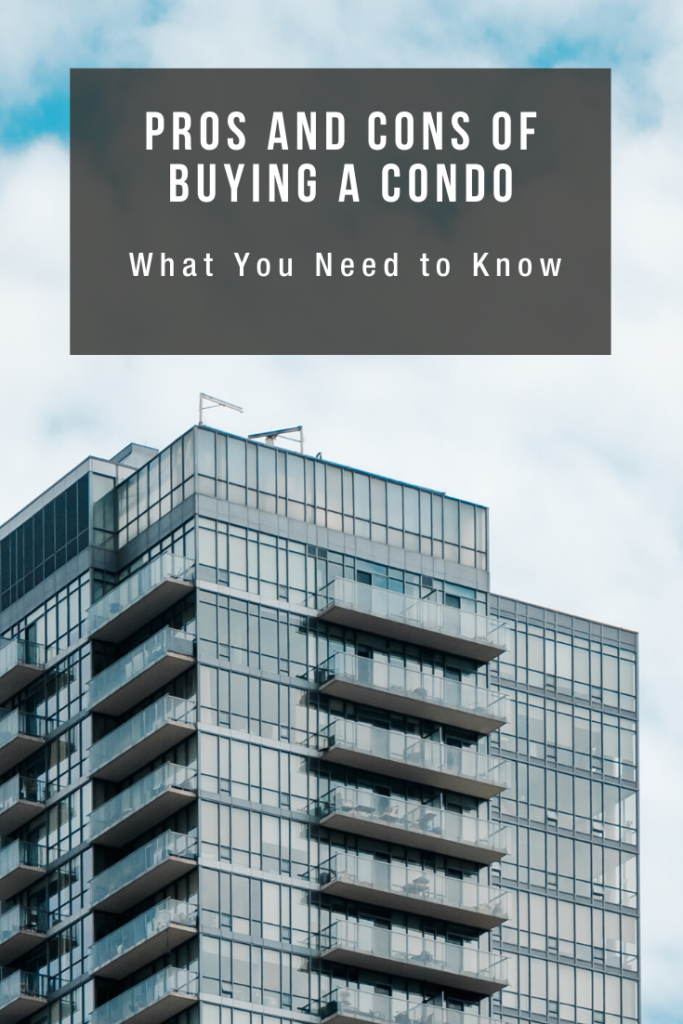
Are you thinking of buying a condo? If you answered “heck, yeah!” you’ve likely got many questions on your mind. What do I have to gain? What are the drawbacks? How do I know if I should take the plunge? And if I do — how do I get started with the purchase? There are many factors to consider, and we’d like to help you out.
We’ve researched the condo landscape extensively and full disclosure: we don’t own one (yet). But we know a thing or two about the real estate market and are genuinely passionate about helping our community make great decisions about their property purchases. We currently own an RV, a fourplex, and three single-family homes … never say never on the condo front.
Aaaannd…when we lived in NYC, Nick was a real estate agent, and you can bet clients were weighing their options between owning a condo vs. co-op vs. single-family home (when you could find one!)
Read on to hear the Nestrs breakdown of the pros and cons of condo life and how to buy one. Purchasing a condo can be a brilliant choice, but it isn’t the best fit for every situation. We are hoping that the information here will help you make an informed decision about adding a condo to your real estate portfolio! Do you need a hand with design, renovations, or rentals? Nestrs is here to help!
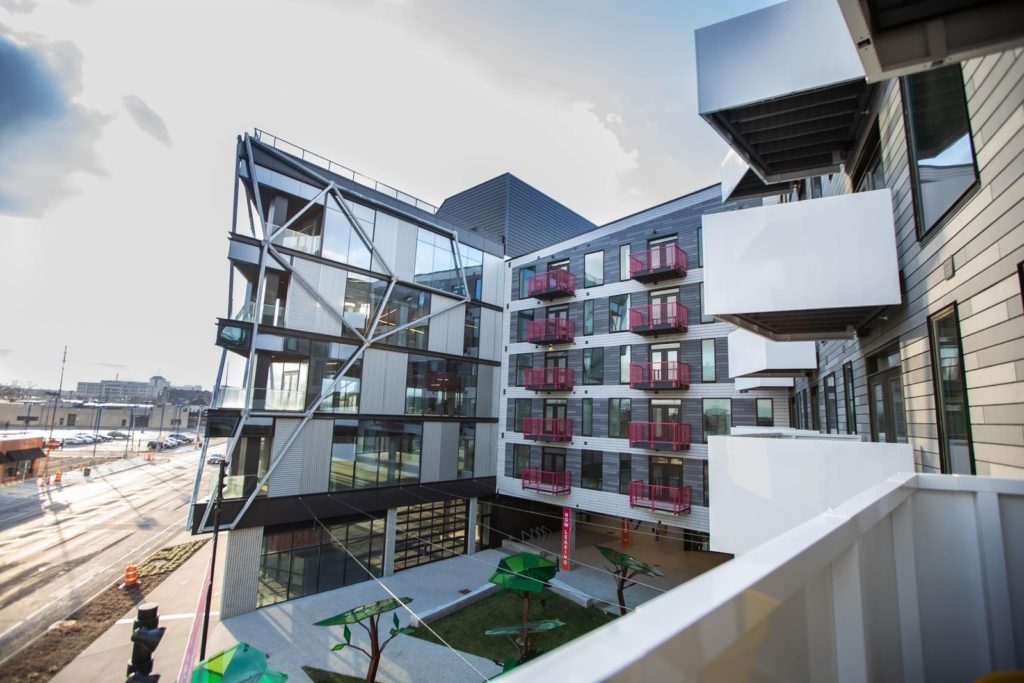
Related: Building a House Vs. Buying a House
What Is a Condo?
Alright, let’s back up. (And if you’re already a condo enthusiast, feel free to skip this lesson on Condos 101.)
So what exactly is a condo? How are they different from other types of properties, like apartments?
- Condos are privately owned.
- Condo owners jointly share common areas within a building or community.
- Condos are located within high-rise buildings, side-by-side with other units, or fully detached.
- Condos typically are managed by a homeowners association (HOA) and require monthly dues and adherence to regulations.
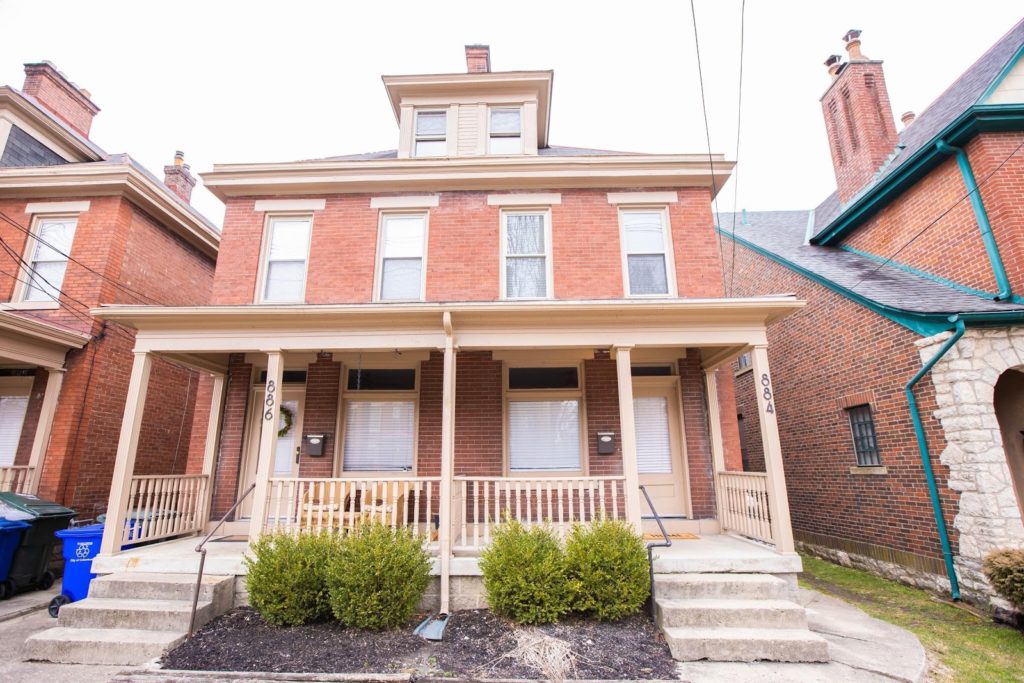
For starters, the word condo is short for “condominium.” Did you know that condos are known as a “common interest development”? A condo’s defining characteristic is that it is a private residence within a broader community or building. (On the flipside, apartments are leased houses.) Condo owners share common areas within the community. Think pools, parks, garages, elevators, outdoor hallways, and fitness centers. These amenities come with a price tag in the form of monthly dues that cover maintenance and operating costs. Homeowners association’s (HOAs) usually manage these functions. Condos are attached units (like townhouses that share walls), units within a high-rise (like an apartment that is land-locked by other units), or fully detached units.
Owning a Condo: The Pros
How do you know if you should buy a condo or go in a different direction, like a single-family home? Many people are drawn to condo ownership because they’re looking for simplicity. In most cases, the condo lifestyle comes with less stuff to manage. Add to that the benefits of the community lifestyle (shared spaces, events, and more), and it’s easy to see why condo ownership is rising in popularity. Condos can be a great choice, regardless of your age or family dynamic. If you’re looking for less maintenance and more flexibility to pursue travel, the benefits of owning a condo may resonate with you.
Less Maintenance
If managing property isn’t your favorite way to spend your time, then condo life would be perfect! Who wants to shovel snow, clean packed gutters, or find a contractor to fix your leaky roof (—besides Nick!)? You’ll get an experienced maintenance staff at-the-ready to tackle home repairs and everyday maintenance with a condo. This can be a huge plus for first-time homeowners who don’t know a downspout from a soffit vent, professionals who work crazy hours, couples who love to take off and travel on a whim, or anyone whose health circumstances may make it difficult to tend to major repairs or ongoing property needs.
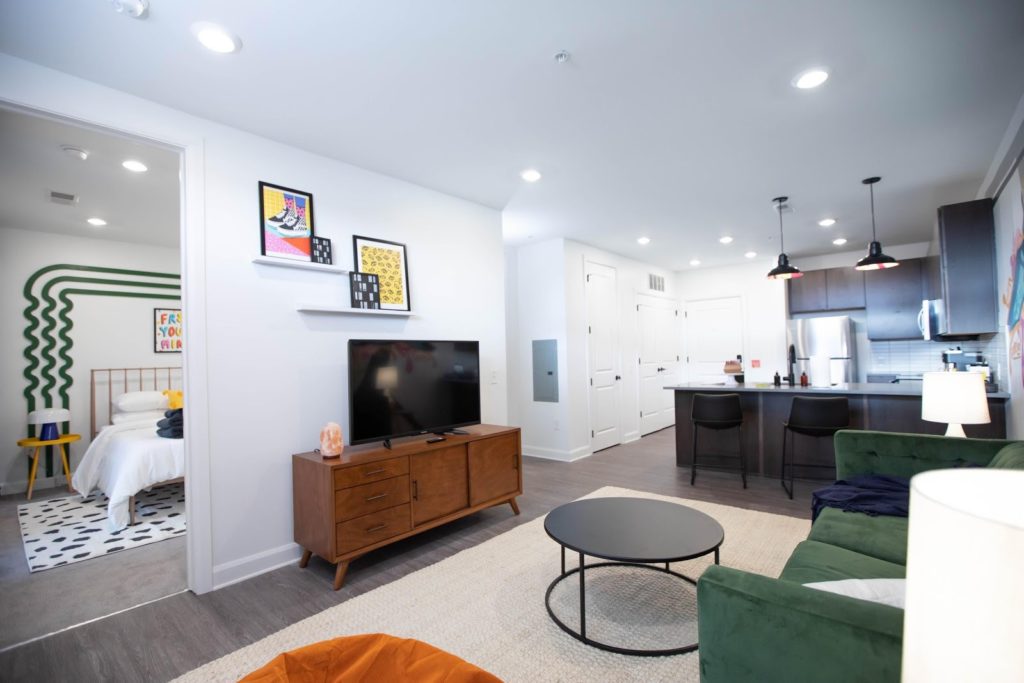
Come and Go Whenever
Aside from time savings, the “managed maintenance” aspect of condo life comes with another huge benefit – your home practically runs itself. This means that you can travel for work or leisure without worrying about unexpected property disasters, ongoing maintenance needs, or security. It’s just all covered, all the time. When you’re not bound to a regular maintenance schedule, you’re free to come and go whenever you please; this is one reason we opted for an RV when we first left NYC. To help focus on our long-term plans, we needed less to manage and the freedom to travel on a whim. The flexibility was freeing!
Security
Top-notch security comes standard in many condo arrangements. It’s not uncommon for a condo community to have a gated or locked entrance, dedicated doorkeeper, or other types of security professionals available for residents. These things can help reduce the risk of break-ins to your home and just plain put your mind at ease. What’s more, your nearby comrades in condo ownership are close at all times. You’ll always have someone to lean on in an emergency (even if that emergency is an empty butter tray when you’re trying to make cookies).
Amenities
Shared amenities are what can set condo ownership apart from other types of properties. Condo communities often provide facilities that are not feasible to purchase and maintain in a single-family home scenario. Amenities can provide leisure to enhance your life and an opportunity to socialize with your neighbors. Here are a few impressive condo amenities to help you create your must-have list:
- Pool with poolside lounge (duh)
- Cafe
- Fitness suite
- Office space
- Social space
- Private dining hall
- Round the clock concierge
- Private parking
Check out this list from Key Marketing for a full rundown of 151 condo amenities.
Related: Easy Tips for Entertaining in Small Spaces
Owning a Condo: The Cons
So we ended that “pros” section on a high note, for sure. What’s there not to love about a steam room and a wine bar? But there’s a reason the decision to jump to condo life isn’t easy. For as many benefits as there are to owning a condo, there are just as many drawbacks. Those sweet amenities and in-house maintenance come with a cost. Owning a condo is a long-term game, and there are plenty of downsides to come to terms with. Make sure you’ve thought long and hard about the fees, rules, and resell value. How do these cons stack up against the pros for you?
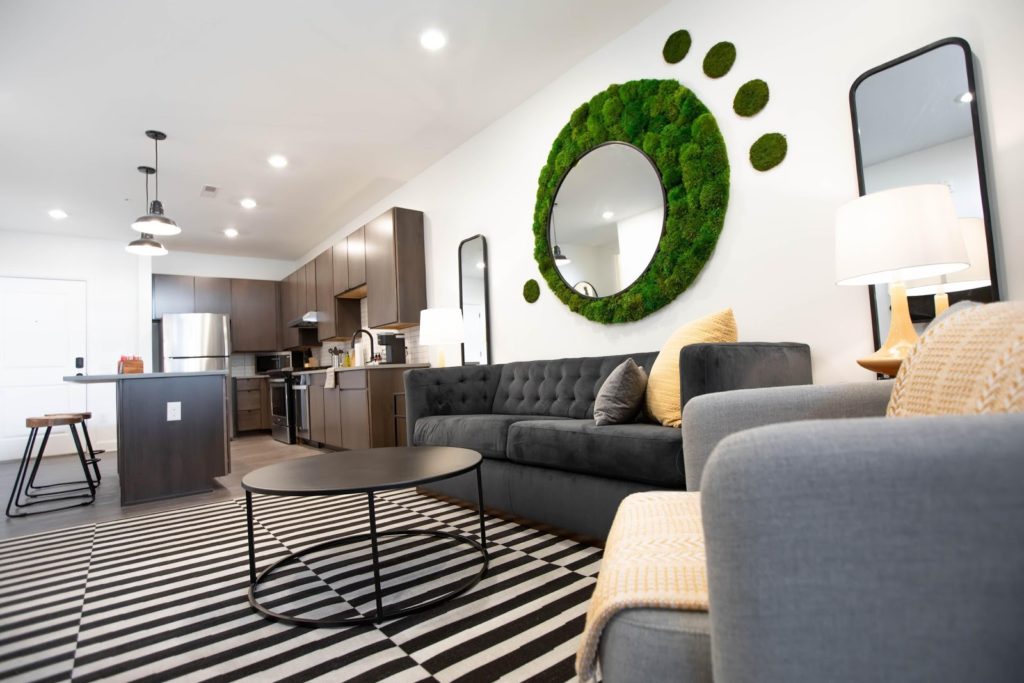
HOA Fees
If you choose to purchase a condo, you agree to shoulder the responsibility for the services and amenities you share with other condo owners. You do this through your monthly fee to the homeowners association (HOA). This fee is in addition to your mortgage, and it helps to pay for your property upkeep and other more significant capital investments that the community may choose to undertake. HOA fees vary widely (from $250 to upwards of $600 per month) depending on the condo community’s location and other characteristics. And remember, these costs are not fixed. They can go up in the future. Be sure you consider the potential for increased fees over the long run.
HOA Rules
HOA rules and regulations can be a real drag. I’m just going to say it. If your response to “all white mailboxes” or “no Christmas lights” is an eye roll, then HOA rules may be tough for you to stomach. If you feel strongly about having freedom in managing your house, make sure you’re ready for less autonomy if you decide to purchase a condo. HOA regulations may affect your condo’s exterior and interior and might diminish your ability to express your design style. Don’t like the idea of living by someone else’s rules? Condos may be a hard pass for you. These rules and regulations are often non-negotiable.
Lack of Privacy
You won’t find sprawling yards and distance from neighbors in a condo community; you may share all of your walls with other families. Structurally, condos just aren’t built for privacy and can often feel like living in an apartment. And if you’ve been there before, I’m sure you’ll quickly remember a few of the downsides to renting an apartment. All of the shared space (walls, ceilings, floors, hallways, etc.) can make for a lot of unwanted noise and commotion. If you value quiet and privacy above all, condo living may not fit your needs.
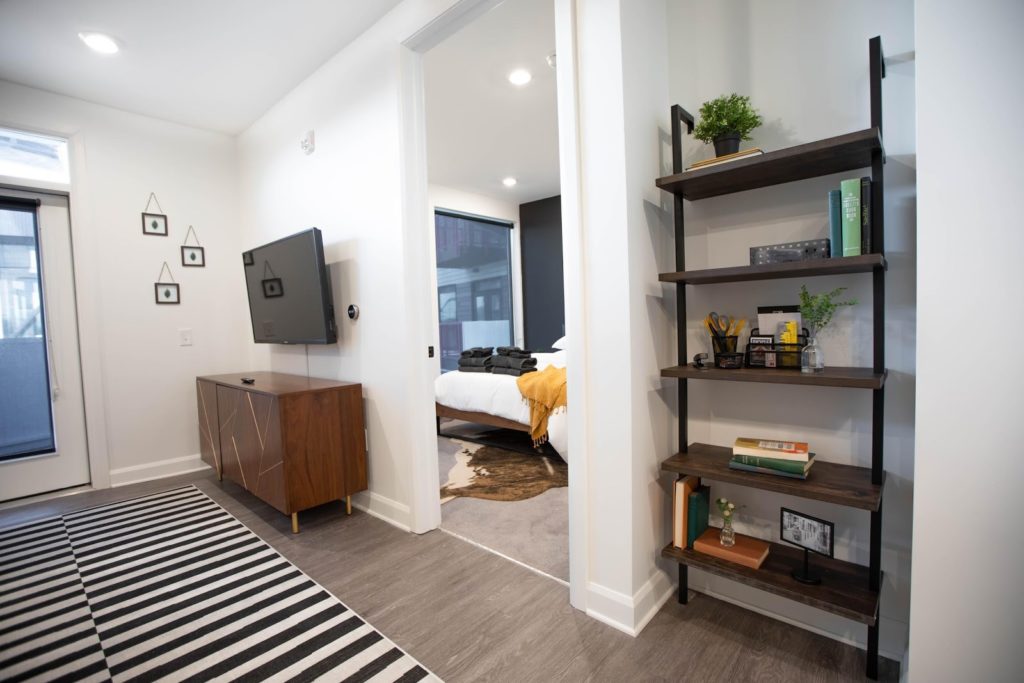
Hard to Sell
For us, this one’s tough to get past. Condos simply aren’t easy to sell, generally speaking. There are a few reasons why it can be challenging to sell a condo:
- The buyer pool is limited. Condos just aren’t for everyone. We’ve already covered why some folks may not be interested in buying a condo – these are factors that narrow your list of potential buyers.
- HOAs can get in the way. High dues may price some people out of buying your condo. If the HOA doesn’t sufficiently maintain the property or is struggling for funds, buyers may shy away. What’s more, mortgage lenders assess the financial health of HOAs when deciding whether or not to extend a loan to a potential buyer. A poor HOA can damage your chances of making a sale, and often the quality of your HOA is entirely out of your control.
- Empty units in your community will often sell before occupied units. You’ll likely struggle to sell your condo if the community is overrun with new or empty condos.
How to Buy a Condo
How are you feeling now? No matter which options you’re considering (“to buy” or “not to buy”), you’ll want to make sure you understand what can be involved in buying a condo to make a fully informed decision. Purchasing a condo can be a complicated process and a huge time suck. It can take a lot of research to find the right community for you. You may want to have a real estate agent on your side when you begin your search. You’ll want to consider the unit’s age, all of the ins and outs of the governing HOA, the social climate, and more. Is the condo move-in ready? Will you need a legal degree to make sense of the HOA regulations? Do your research and get prepared. Be sure to check out these tips below before you jump into an investment.
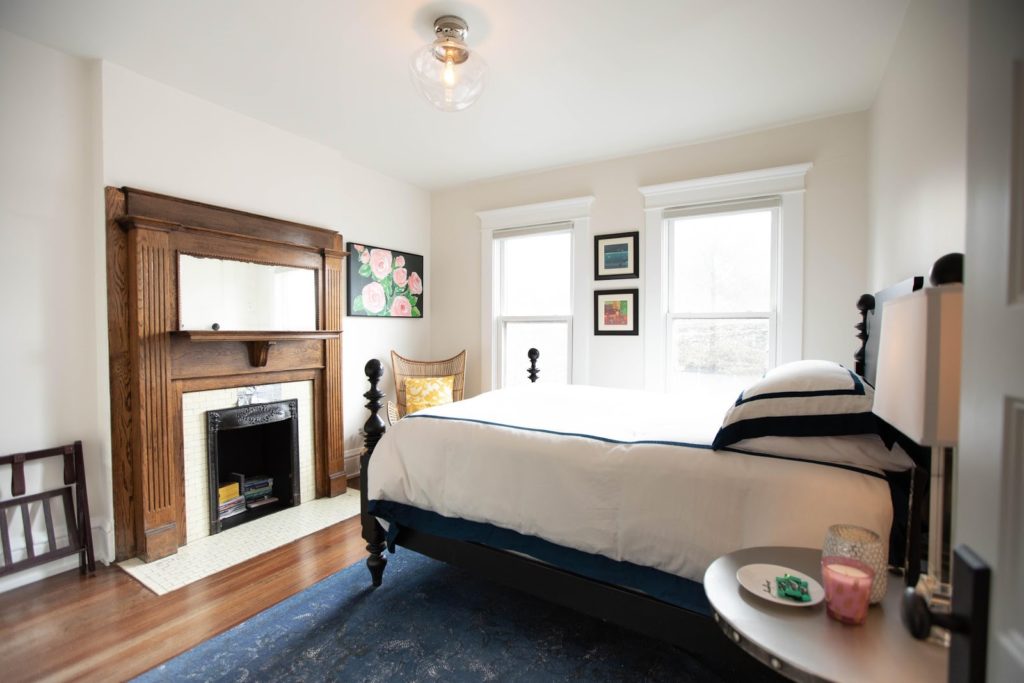
(For a closer look at the process, we recommend checking out “An Introduction to Buying a Condominium” by Investopedia or the “Step By Step – How To Buy A Condo” guide from Condo Sales.)
Think Twice About an Older Condo
The major downside to purchasing an older condo is that HOA fees are often higher in earlier communities. It’s because they require more maintenance to stay in good working condition. Trulia has reported on the increase in HOA fees for older condo properties … you’ll want to check out their research summarized in “Attack of the Killer HOA Fees” if you’re considering an older condo. But don’t despair! There are plenty of reasons to consider an older condo. Check out this article on “Great Tips for the Purchase of an Older Condo” if buying an old or refurbished space is your jam.
Read All Documents Thoroughly
The documents that govern your condo ownership are plenty. You can expect more guidelines and legalese than traditional single-family homeownership. All of those things you love about owning a condo (amenities and managed maintenance, remember?) come with contracts that you’ll want to know. Make sure you review the documents related to your unit (its boundaries, in particular), common elements shared by all owners (like pools, roofs, entrance gates, and grounds), and limited common elements (those that fall outside the realm of your standard unit but aren’t exactly common – think mailboxes, awnings, stoops, and balconies). Read your HOA bylaws carefully!
Talk to Your Neighbors
You’ll want to find a way to talk to your potential neighbors before committing to buying a particular condo; this may be your most honest indication of how the community is managed (not to mention, an introduction to who your neighbors will be). Ask current residents about the HOA board members and how actual owners describe the vibe of the community. If you can, try to get some intel on the number of units that are owned by investors and rented out. Some lenders will refuse a loan for communities with a high rental ratio, and the revolving door of vacation renters may be a real headache.
We hope this article has given you some perspective on buying a condo. You can take so many routes on your journey to homeownership, and it’s important to know thyself!
If you travel a lot, don’t have a ton of time for home maintenance, etc. condos are an excellent option for you. However, if you just can help yourself from tinkering on your home or you have control issues…. as we do….a traditional single-family home might be more your speed!
Is condo life your jam? Do you have a condo horror story to share? Think we should add one to our property portfolio someday? We love to hear what you guys have to say!
Related: Simple Ways to Freshen Your Home
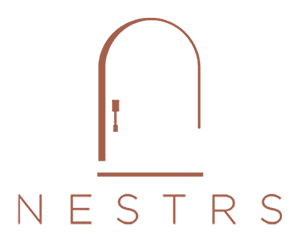
No Comments